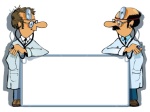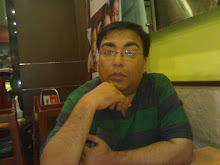 Many years ago when I worked at a hospital chain, our advertising agency had come up with a campaign featuring happy patients. The hospital wanted to showcase their doctors. The objective of the advertising was to showcase the hospital’s expertise and superior services and position it on the ‘care’ platform.
Many years ago when I worked at a hospital chain, our advertising agency had come up with a campaign featuring happy patients. The hospital wanted to showcase their doctors. The objective of the advertising was to showcase the hospital’s expertise and superior services and position it on the ‘care’ platform.
The advertising agency and the hospital had been at loggerheads on this. The agency was dead certain that showing hospital doctors in ad visuals was a bad idea. They had come up with the images of happy people, who had had wonderful experiences at the hospital. The copy proceeded to narrate the experience in glowing terms, capturing the essence of the hospital and making a point about its medical and other services. I had liked the ads, though I found them a little run of the mill. Nothing very extraordinary but steady communication, which made its point. It however never saw the light of the day.
In those days (and I suspect in many hospitals even today) the brand manager had to run the ads past the medical folks. The prevalent thinking was that the medical people will be able to spot bloomers and also come up with great suggestions and those could be incorporated in the communication. However, I quickly learnt that the reality was usually very different. Most medical folks had very little understanding of consumer facing communication, and most wanted themselves featuring in the ads. Many also wanted images of them operating on patients and were keen to showcase all the gory details of their glorious profession. Some even had suggestions on how ad copy headlines and even hospital logo was to be arranged. The advertising agencies hated this mutilation of their advertising and the brand manager had the task of balancing the demands of the doctor, the agency and the brand itself.
As I gained in experience, I realized that a lot of hospital advertising had very little to do with end consumers. Now, this may sound absurd, but let me explain. Often hospitals would hire high profile doctors committing huge marketing spends on promoting them and their specialities. This would be the understanding between the hospital bigwigs and the doctor concerned. Thus, a significant purpose of the advertising will be to keep the doctor in good humour and honour a commitment made to him. Thus the doctor would legitimately expect to feature in the communication and try and showcase his skills.
Unfortunately, even now one rarely comes across real ‘brand’ advertising in healthcare in India. Most hospitals still prefer to bet on individual doctors and shy away from investing in the hospital brand. New hospitals do a little ‘launch’ related advertising, however there too quite often one encounters a well known doctor prominently featured in the communication.
Recently I came across advertising for Alchemist Hospital in Gurgaon, featuring the well known cardiac surgeon Dr. P Venugopal. He was till recently the director of the All India Institute of Medical Sciences and has now joined Alchemist Hospital in Gurgaon. Max Healthcare announced the commencement of their cancer services leading in with the doctors they have hired. They also ran ads featuring Dr. Pradeep Choubey, a well known laparoscopic surgeon who has joined them from Sir Gangaram Hospital.As a consumer, why do I need to know how Dr. Choubey looks to understand that he has now moved from Sir Gangaram Hospital to Max Hopsital. Yes, as a consumer I would like to know how Dr. Choubey’s expertise and services makes Max Healthcare a better hospital.
Seeing these ads recently reminded me of my struggles as a young brand manager. Even after so many years, it seems in healthcare communication nothing much has changed.
Here is wishing everyone a Merry Christmas!!!
Pic courtesy www.istockphoto.com


